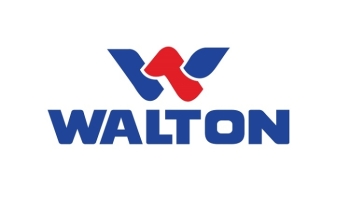Hakkani Pulp’s Q1 earnings rise by 110%
BI Report || BusinessInsider

Logo of Hakkani Group
The earnings per share (EPS) of Hakkani Pulp & Paper Mills Ltd finally came out of the negative value this year.
According to its Q1 (July-September) financial statement posted on the Dhaka Stock Exchange (DSE) on Tuesday, the company reported a 110% rise in its EPS to Tk0.22 as against Tk0.24 for the last year’s Q1.
The net operating cash flow per share (NOCFPS) was Tk0.53 for Q1 of 2020 in the negative as against negative Tk0.47 for the Q1 of 2019.
Meanwhile, the net asset value NAV per share (with revaluation) was Tk26.06 as on September 30, 2020 and Tk25.78 as on September 30, 2019.
NAV per share (without revaluation) was Tk11.56 as on September 30, 2020 and Tk10.73 as on September 30, 2019.
Earlier, on November 15, the board of directors of the company recommended a 2 percent cash dividend. But the dividend was only for general shareholders other than sponsor shareholders.
The general annual meeting of the company is scheduled to take place on December 29 using a digital platform.
In its statement on DSE on November 15, the company also informed that the sponsors/directors hold 97,99,330 shares out of the total 1,90,00,000 shares of the company and the cash dividend to be payable to the general shareholders is Tk 18,40,134.
Hakkani Pulp & Paper Mills have been making losses for the last five years. This year, however, it increased its production capacity in an attempt to recover from the loss.
According to media reports, a lack of capital allowed it to use only 43.31 percent of its production capacity.
The company faced more than a Tk2 crore loss in 2018-19 alone. Half of the loss came from its tissue business.
Despite the loss, the company gave two percent cash dividends to its shareholders last year. But the sponsor directors did not take any dividends.
The company came into a point where the directors of the company had to step forward and sell their shares in order to collect working capital.
























